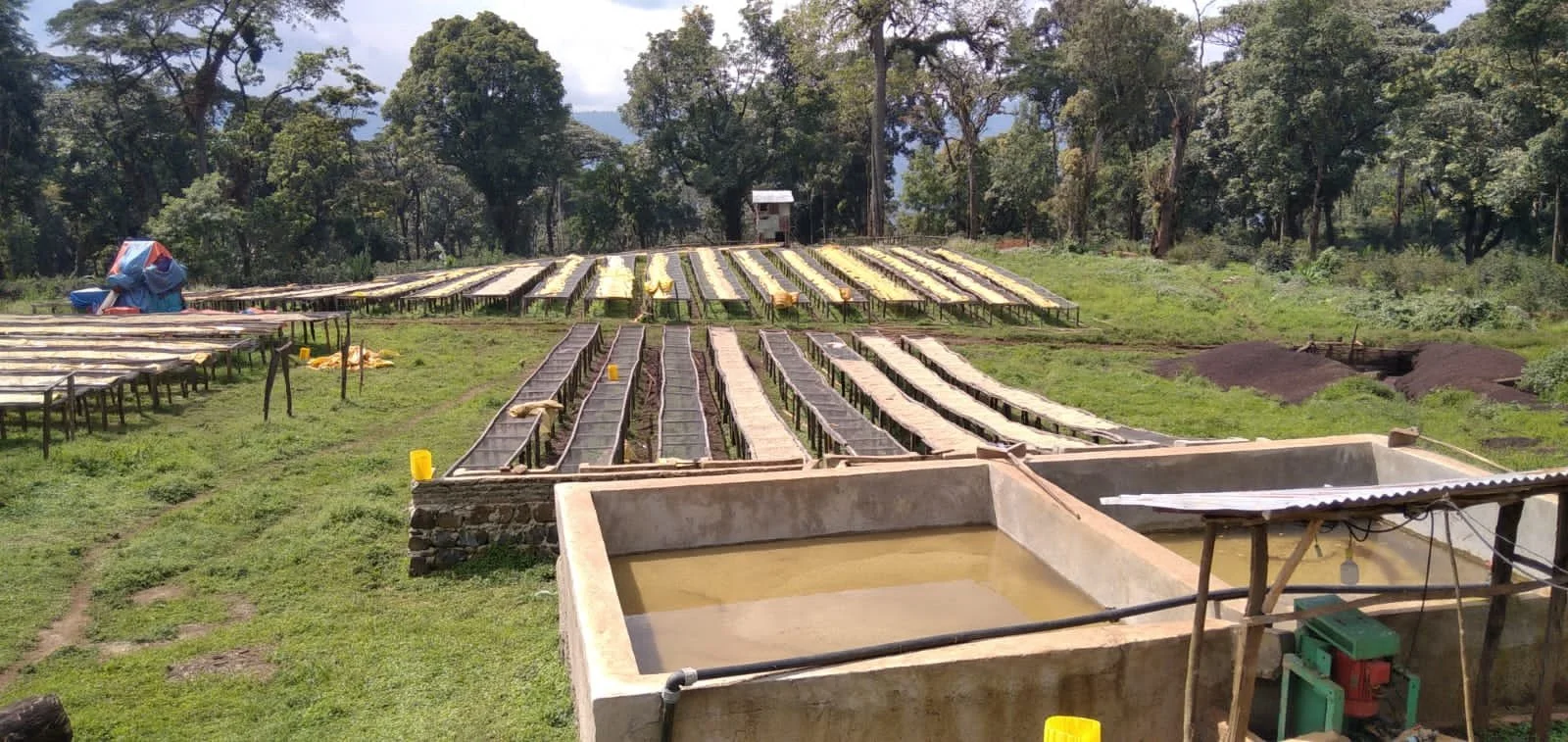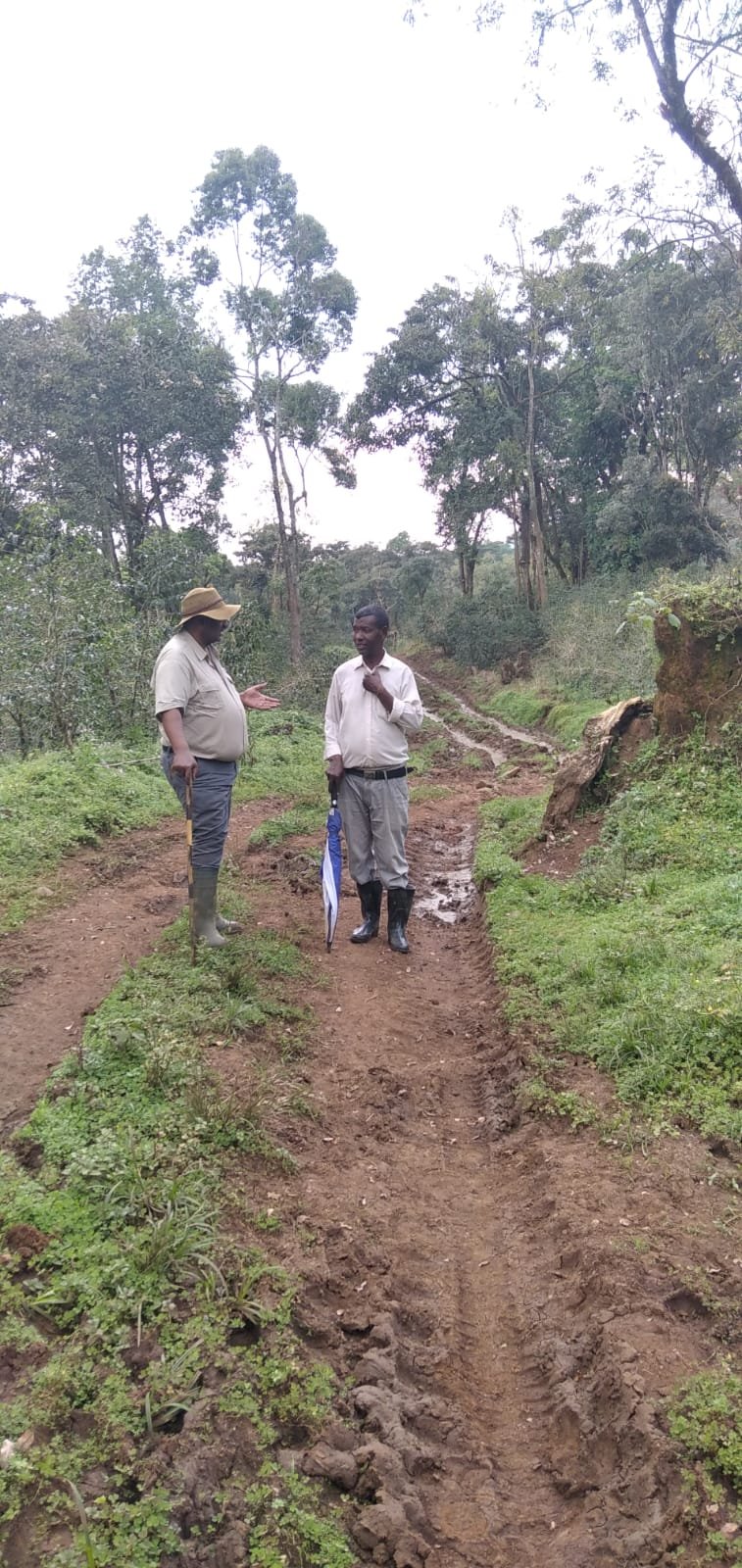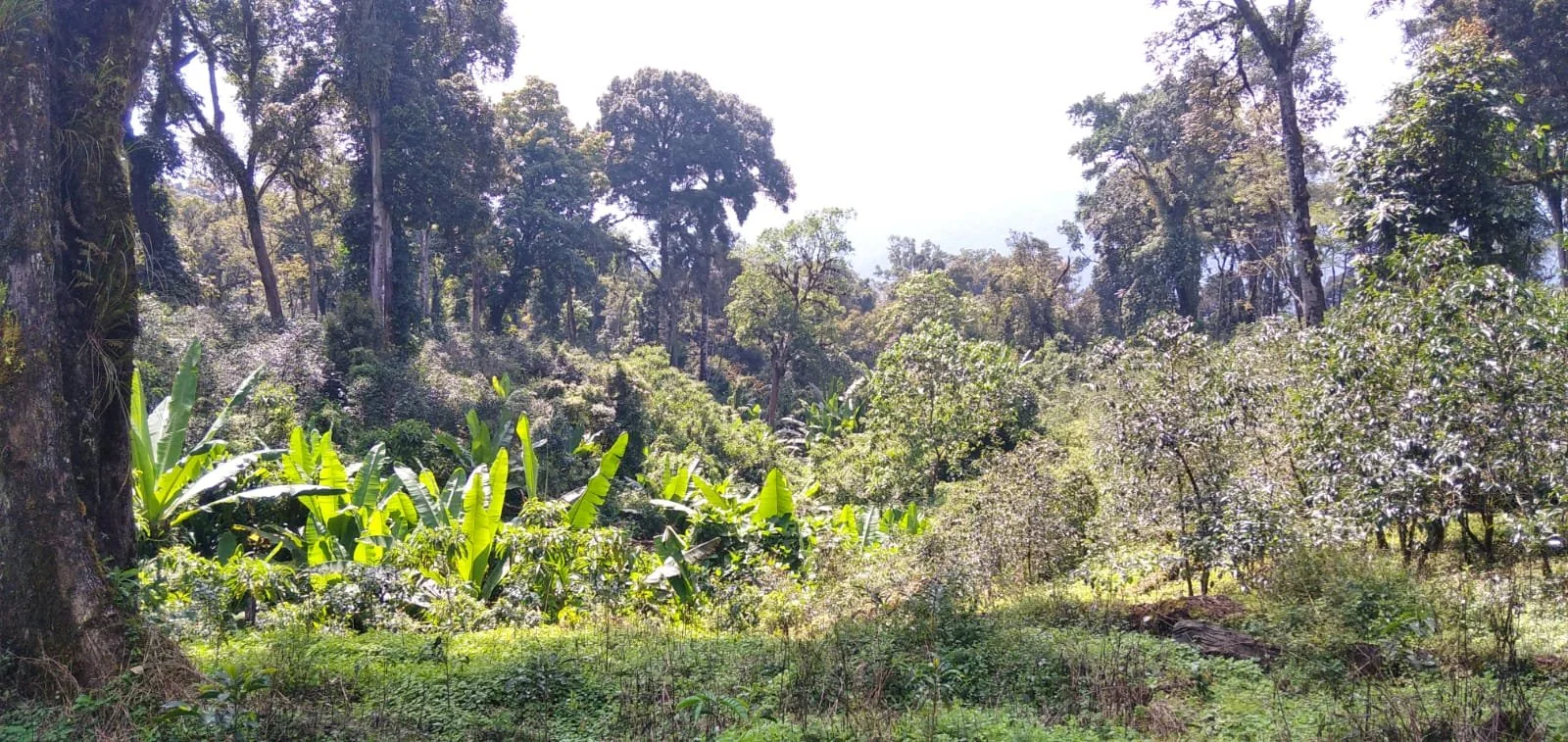The most sustainable option
“In terms of development, there is not much going on here," says Abiy about Sheka. "Farmers in this region have almost no opportunities for economic development, and the coffee they harvested mostly came from old trees and was cheaply sold. This region is quite different from Limmu Kossa."
Located about 370 kilometres from Jimma, in the southeast, Sheka is also one of the richest and most diverse regions we've come across. It is also one of the few regions in the world protected by the UN. This reserve includes forests, bamboo thickets, wetlands, agricultural land, rural settlements, and towns. It covers a unique biogeographic unit extending from cold and very wet highlands to hot lowland areas.
Farmers who work in this area are highly committed to the sustainable use of the forests. Still, they often need more income to avoid logging and unsustainable forest exploitation. To Gidhe, growing coffee seemed like a perfect solution, and so, as with his other projects, he embarked on this adventure.
This region's soil is rich, but transportation is complicated. Added to this, the processing can become compromised because of the constant rain (it rains 9 months a year!). We are so proud to support this project and see the results of Gide's and Aby's efforts for the first time.
CULTIVARS:
Heirloom varieties
ALTITUDE:
1680 -1,950 meters above sea level
NOTABLE:
Sheka is a coffee project developed within the Sheka Forest Biosphere Reserve in the region of Sheka. Grown in absolute harmony with nature, coffee cherries are harvested by farmers with few viable economic opportunities. The transportation of the cherries is extremely labour-intensive, since the roads tend to get extremely muddy during the rainy season. Roads are cleared to facilitate transportation. Additionally, the drying is extremely complicated because it rains nine months of the year.
PROCESSING:
Cherries are hand-picked by seasonal pickers on the estate. On delivery, all cherries are pre-screened by controllers, after which lots are separated into the washed lots (early and midseason) and naturals (late season).
Fully washed: hand-picked, pre-sorted, floated, pulped, wet fermented for 12 hours, soaked and washed, dried on raised beds, and dry-milled all under the supervision of the farm owner, Giday.
Natural: fully ripe cherries are spread evenly on raised beds and turned every hour to prevent moulding, especially in the first few days. Sun-dried for at least 12 days.
PHOTO GALLERY:
You may use these images freely to promote Limu Kossa and the Galeh micro-lot among your customers.












